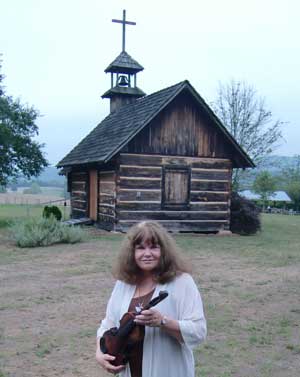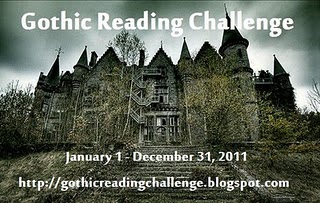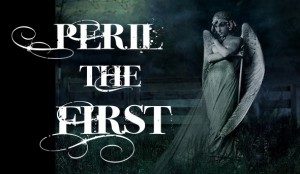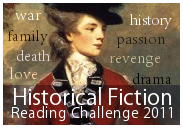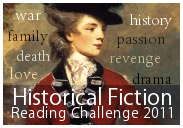The picture above is making the rounds after being posted by Reddit user Jessers25. One of the reasons I am sad that Borders is closing is that it was the closest bookstore to me, and now with no indie stores (at least none that sell new books—all used bookstores) and Barnes and Noble fairly far away, it’s extremely difficult for this reader to support brick-and-mortar bookstores.
This week I finished [amazon_link id=”0312558171″ target=”_blank” ]The Ballad of Tom Dooley[/amazon_link] by Sharyn McCrumb (review). I also thought about which books I’d like to re-read.
This weekend was a long weekend for me as I work at a Jewish high school, but I am not Jewish myself, so Rosh Hashanah became true time off for me—for my colleagues it is spent in synagogue rather than work, or at least part of it is. Saturday was cold and perfect for curling up with a cup of tea and Aunt Jane, so I dove back into [amazon_link id=”9626343613″ target=”_blank” ]Sense And Sensibility[/amazon_link] again. I listened and read along with the text with my old [amazon_link id=”0553213342″ target=”_blank” ]Bantam copy of the book[/amazon_link], which was the first copy of the book that I bought years ago and read in probably 1998 for the first time. I remember that because it was my first year teaching. I wonder if Ruben Toledo will be designing a cover for it like he did [amazon_link id=”0143105426″ target=”_blank” ]Pride and Prejudice[/amazon_link]? I just love his cover designs.
[amazon_image id=”0143105426″ link=”true” target=”_blank” size=”medium” ]Pride and Prejudice: (Penguin Classics Deluxe Edition)[/amazon_image] [amazon_image id=”0143105434″ link=”true” target=”_blank” size=”medium” ]Wuthering Heights: (Penguin Classics Deluxe Edition)[/amazon_image] [amazon_image id=”0143106155″ link=”true” target=”_blank” size=”medium” ]Jane Eyre: (Penguin Classics Deluxe Edition)[/amazon_image]
[amazon_image id=”0143105442″ link=”true” target=”_blank” size=”medium” ]The Scarlet Letter: (Penguin Classics Deluxe Edition)[/amazon_image] [amazon_image id=”0143106147″ link=”true” target=”_blank” size=”medium” ]The Picture of Dorian Gray: (Penguin Classics Deluxe Edition)[/amazon_image] [amazon_image id=”0143106163″ link=”true” target=”_blank” size=”medium” ]Dracula: (Penguin Classics Deluxe Edition)[/amazon_image]
Did I miss any of them? Let me know in the comments.
I am also reading [amazon_link id=”0441020674″ target=”_blank” ]Those Across the River[/amazon_link] by Christopher Buehlman for the R.I.P. Challenge. Good so far, and set in my home state of Georgia. I initially suspected that the woods near the Savoyard Plantation were populated with zombies, but I understand that they are probably werewolves instead. I will find out shortly, I suppose.
Today is Matthew Pearl’s birthday! He’s one of my favorite writers. Leave him a birthday wish on Twitter or on his Facebook fan page. I can’t wait for his next book, [amazon_link id=”1400066573″ target=”_blank” ]The Technologists[/amazon_link]. I have enjoyed his previous books:
[amazon_image id=”0812978021″ link=”true” target=”_blank” size=”medium” ]The Last Dickens: A Novel[/amazon_image] [amazon_image id=”0812970128″ link=”true” target=”_blank” size=”medium” ]The Poe Shadow: A Novel[/amazon_image] [amazon_image id=”034549038X” link=”true” target=”_blank” size=”medium” ]The Dante Club: A Novel[/amazon_image]


